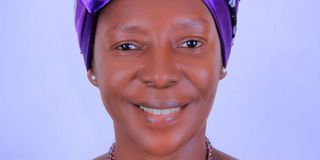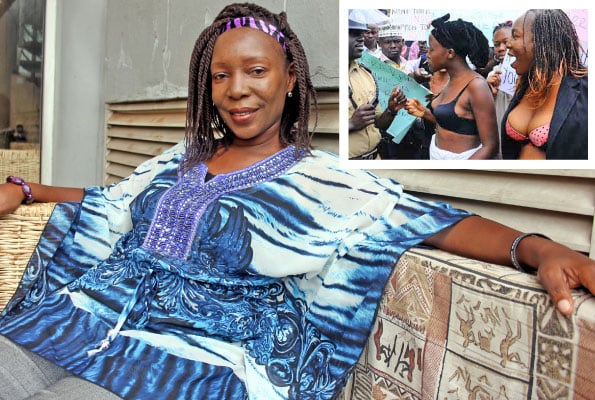Political activist Barbara Allimadi reported dead

Deceased: political activist and International Affairs Secretary of the Alliance for National Transformation (ANT), Barbara Allimadi. COURTESY PHOTO
Political activist and International Affairs Secretary of the Alliance for National Transformation (ANT), Barbara Allimadi is reported dead.
Her brother Milton Allimadi announced her death on his social media platforms Monday night.
“Family and friends, it is with a very heavy heart that we announce the sudden passing of our sister Barbara Allimadi.Barbara was a much loved sister, aunty and cousin. She was also an activist, a champion of justice and democracy in Uganda. She will be greatly missed. The family ask that the public respect our privacy as we mourn our beloved sister. The family will provide more information in the near future,” he said.
Minutes later, Maj Gen (Rtd) Mugisha Muntu, the ANT national coordinator also shared her picture on his social platforms without captions.
Allimadi is said to have been found dead in her house in Kiwatule, a Kampala suburb, by one of her cousins with whom she stayed in the house.
ANT coordinator for Finance and Administration, Ms Alice Alaso said the body had been taken to the mortuary and they were waiting for more information on what could have caused her death.
“I don’t know what to say at the moment but we are deeply grieved by the passing of one of our key leaders. We are waiting for the postmortem so that we can conclude on anything at the moment but as it is now, she is gone,” Ms Alaso said.
In his tribute, Dr Kizza Besigye, a former president for Forum for Democratic Change (FDC) where Allimadi was also once a member described her as “an impactful and a fearless frontline activist.”
“Barbara has been an impactful and a fearless frontline activist of the ongoing liberation struggle in Uganda. Her sudden (and still inexplicable) demise is as shocking and painful as it’s debilitating. Heartfelt condolences to family and friends,” Dr Besigye tweeted.
Allimadi became a popular activist in April 2012 when she appeared on different news platforms during the semi -nude protest that followed the televised police assault on political activist Ingrid Turinawe.
In a 2013 article titled
, this is what she told this publication:
“I had no apology. I understood that not everybody was comfortable with it. I can’t say I was 150 per cent comfortable with it myself. There was no comfortable way of handling the situation. What had been done to Ingrid was dire.”
READ:
Before the bra protest, Allimadi’s was not a common face. When Allimadi spoke English, it was with a foreign accent, which was the result of having lived and studied in Britain since her teens. One of 17 children born to the late Otema Allimadi, a former prime minister of Uganda during the Obote II regime between 1980 and 1985, Allimadi attended Nakasero Primary School before joining Gayaza High School for one year prior to her family’s exile to the United Kingdom following the 1985 coup that ousted Dr Milton Obote. Until her return to Uganda, she worked as a network engineer in the UK.
In 2007, she returned for her mother’s funeral, and eventually decided to stay.
“For me, it’s just about dignity; human rights for all of us. I just want to see the right thing done for all of us,” she said in an interview then.
It is the pursuit for justice that had driven her to take part in various public protests, including a march to Luzira prison in opposition of the detention of men arrested on suspicion of participating in the Buganda Kayunga riots.





